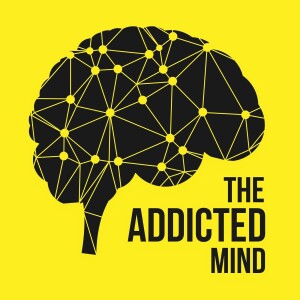
69: Medication-Assisted Addiction Treatment with Cynthia Schmit
 2019-08-15
2019-08-15
Cynthia Schmit is an advocate for medication-assisted treatment of addictions who would love to see healthcare providers informing their patients of all of the options for treating their addictions. On this episode of The Addicted Mind podcast, Cynthia talks with us about the physiology of addiction and the need for education regarding medication-assisted treatment.
Join The Addicted Mind Podcast Facebook Group>>>
In her early 20’s, Cynthia found herself using every recreational drug that someone put into her hand, quickly progressing from marijuana to heroin and beyond. She found herself wanting to quit often, attempting to detox on her own at least 5 times before she completed a 28-day methadone detox and a 6-month 12-step recovery program. During her time in rehab, the knee-jerk reaction of providers was “you don’t treat drug addiction with drugs,.” Medication-assisted treatment was not presented as an option to her. She got married a few years into her recovery.
Calming The Addicted Mind - 6 Day Mindfulness Email Series
theaddictedmind.com/mindfulness
She then moved to the east coast where she completed her bachelor’s degree in behavioral science and her master’s in social work at Columbia. While at Columbia, she started volunteering at the buprenorphine program, of which she eventually became the managing director. With her experience working with treatment providers and drug manufacturers, Cynthia came to understand precisely how drugs like buprenorphine and methadone can assist in treating drug addictions.
Physiologically, consuming drugs is tied to the rewards circuitry of the brain, which was intended to support behaviors that support survival, such as eating. Drugs, of course, do not promote survival, but since they are tied to the rewards center of the brain, the brain develops a belief that they are necessary for survival, which is why withdrawals are so difficult and painful.
Episode Link
theaddictedmind.com/69
This is why medication-assisted treatment can be so effective in immediately providing moments of clarity to individuals who are addicted as well as helpful in avoiding potential relapses. Every person is different, and Cynthia’s goal is to have every healthcare provider and treatment center educated about all of the options available for individuals’ treatment plans so they can make the best decisions and recommendations for each patient. This involves the proper way to use medications like buprenorphine as well as how to effectively get off of those medications if and when the time comes.
Cynthia wants everyone to know that there is hope. Advocate for yourself by being well-informed and committing to putting in the work necessary to get into and remain in recovery. You are worth recovery.
More Episodes
Create your
podcast in
minutes
- Full-featured podcast site
- Unlimited storage and bandwidth
- Comprehensive podcast stats
- Distribute to Apple Podcasts, Spotify, and more
- Make money with your podcast
It is Free
- Privacy Policy
- Cookie Policy
- Terms of Use
- Consent Preferences
- Copyright © 2015-2024 Podbean.com






